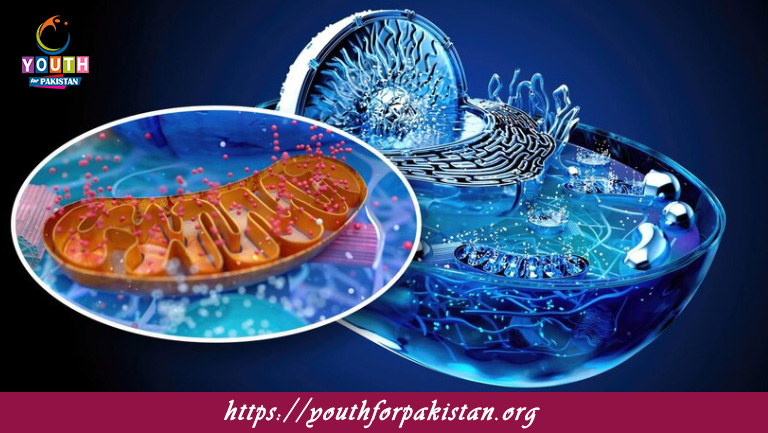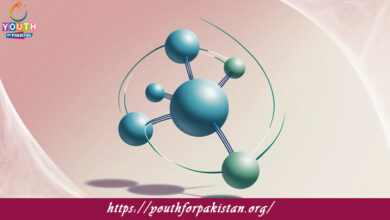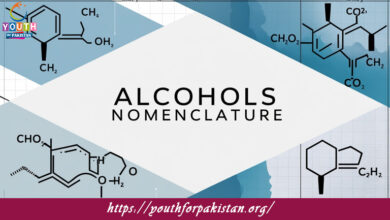Mitochondria MDCAT MCQs with Answers

Welcome to the Mitochondria MDCAT MCQs with Answers. In this post, we have shared Mitochondria Multiple Choice Questions and Answers for PMC MDCAT 2024. Each question in MDCAT Biology offers a chance to enhance your knowledge regarding Mitochondria MCQs in this MDCAT Online Test.
What is the main function of mitochondria?
a) Protein synthesis
b) Photosynthesis
c) Energy production
d) Digestion of macromolecules
Mitochondria are often referred to as the:
a) Powerhouse of the cell
b) Control center of the cell
c) Protein factory
d) Waste disposal unit
Which molecule is produced in large quantities by mitochondria?
a) Glucose
b) ATP
c) DNA
d) RNA
The inner membrane of the mitochondrion is folded into structures called:
a) Cristae
b) Thylakoids
c) Cisternae
d) Vesicles
Mitochondria contain their own:
a) Ribosomes
b) DNA
c) Both a and b
d) None of the above
The space between the inner and outer mitochondrial membranes is known as the:
a) Cristae
b) Matrix
c) Intermembrane space
d) Cytoplasm
Which process takes place in the mitochondria?
a) Glycolysis
b) Krebs cycle
c) Photosynthesis
d) DNA replication
The mitochondrion is composed of how many membranes?
a) One
b) Two
c) Three
d) Four
Which type of cell would likely have the most mitochondria?
a) Red blood cell
b) Muscle cell
c) Skin cell
d) Neuron
The energy produced by mitochondria is stored in the form of:
a) DNA
b) Proteins
c) ATP
d) Lipids
The fluid-filled space inside the inner membrane of the mitochondrion is called the:
a) Cristae
b) Matrix
c) Stroma
d) Thylakoid
Which organelle works in conjunction with mitochondria to detoxify drugs in the cell?
a) Smooth ER
b) Rough ER
c) Golgi apparatus
d) Lysosomes
Which of the following is not a function of mitochondria?
a) ATP synthesis
b) Protein degradation
c) Cellular respiration
d) Energy production
Mitochondria are inherited maternally because:
a) They are present only in sperm
b) They are present only in egg cells
c) Sperm mitochondria disintegrate after fertilization
d) Mitochondria replicate only in female cells
The primary role of the mitochondrial matrix is to:
a) Store DNA
b) Generate oxygen
c) Perform the Krebs cycle
d) Protect the mitochondria
Mitochondrial DNA is:
a) Linear
b) Circular
c) Double-stranded and linear
d) Single-stranded
Which cells have the highest number of mitochondria?
a) Red blood cells
b) Nerve cells
c) Liver cells
d) Skin cells
Mitochondrial cristae serve to:
a) Increase surface area for chemical reactions
b) Store proteins
c) Protect the inner membrane
d) Produce chlorophyll
Which step of cellular respiration occurs inside the mitochondria?
a) Glycolysis
b) Krebs cycle
c) Fermentation
d) Calvin cycle
Which component is produced in the mitochondria during the electron transport chain?
a) Oxygen
b) ATP
c) Glucose
d) Water
Mitochondria are most abundant in cells that require:
a) Minimal energy
b) High levels of oxygen
c) High energy
d) Low oxygen
Mitochondrial DNA codes for:
a) All cellular proteins
b) Some proteins required for mitochondrial function
c) Only ribosomal proteins
d) Only RNA molecules
In which part of the mitochondria does the electron transport chain occur?
a) Outer membrane
b) Inner membrane
c) Matrix
d) Cristae
Which of the following processes does not occur in mitochondria?
a) ATP synthesis
b) Glycolysis
c) Electron transport chain
d) Krebs cycle
What is the energy yield of one glucose molecule from cellular respiration within mitochondria?
a) 2 ATP
b) 4 ATP
c) 32-34 ATP
d) 38 ATP
Which of the following does not describe a function of mitochondria?
a) Site of cellular respiration
b) ATP production
c) Site of photosynthesis
d) Energy transformation
Which of the following is a feature unique to mitochondria?
a) Double membrane
b) Presence of DNA
c) Self-replication
d) All of the above
Mitochondria divide by:
a) Mitosis
b) Binary fission
c) Budding
d) Fragmentation
The final step in ATP production in the mitochondria involves:
a) Glycolysis
b) Krebs cycle
c) Electron transport chain
d) Fermentation
Which type of cells contain more mitochondria than others?
a) Red blood cells
b) Muscle cells
c) Neurons
d) Skin cells
The mitochondrial matrix is responsible for:
a) Storing glucose
b) Performing the citric acid cycle
c) Synthesizing proteins
d) DNA replication
Which of the following is a unique feature of mitochondrial DNA?
a) It is linear
b) It is inherited from the father
c) It is circular
d) It does not replicate
How many ATP molecules are produced during the Krebs cycle in mitochondria from one glucose molecule?
a) 2
b) 4
c) 6
d) 8
The main function of the cristae in the mitochondria is to:
a) Store calcium
b) Increase surface area for ATP production
c) Store genetic material
d) Produce ribosomes
Which of the following is necessary for mitochondrial function?
a) Oxygen
b) Nitrogen
c) Carbon dioxide
d) Water
Mitochondrial dysfunction can result in:
a) Increased energy production
b) Muscle weakness
c) Enhanced protein synthesis
d) Faster cell division
In which cells would you expect to find very few mitochondria?
a) Heart cells
b) Skin cells
c) Liver cells
d) Muscle cells
If you are interested to enhance your knowledge regarding Physics, Chemistry, Computer, and Biology please click on the link of each category, you will be redirected to dedicated website for each category.





